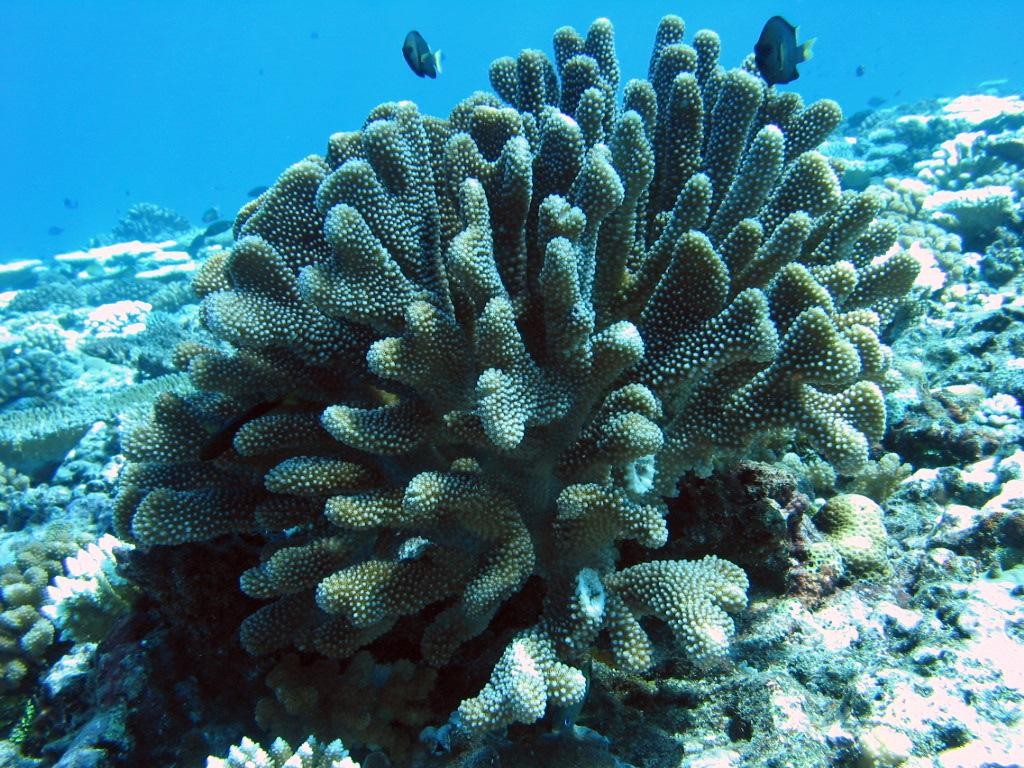ARC Centre of Excellence - Coral's dangerous childhood
by ARC Centre of Excellence Coral Reef Studies on 29 Aug 2010

Becoming an adult coral is not without risk : up to 90 per cent of corals are lost while they are growing-up. ARC Centre of Excellence Coral Reef Studies
http://www.coralcoe.org.au/
ARC Centre of Excellence - Coral's dangerous childhood - Tiny corals face shocking losses when first they settle on reefs, making the full complexity and wonder of the mature coral reef all the more remarkable.
Research by Australian and French scientists has thrown new light on coral’s dangerous infancy and childhood, in the quest to better understand how coral reefs can re-establish, at a time when they face multiplying threats worldwide.
A team from the ARC Centre of Excellence for Coral Reef Studies (CoECRS) at James Cook University and CRIOBE, the French Research Centre and Observatory for Island Environments, used terracotta tiles to study and count survival in minute and juvenile corals on the Pacific island of Moorea, French Polynesia.
'The first thing we found is that the type and amount of coral larvae in the water very rarely bears any resemblance to the mature reef,' Dr Lucie Penin of CoECRS and the University of Perpignan explains.
'What happens to the baby corals in the early stages of their life, up to the age of 4 or 5 years when they begin to reproduce, is clearly of great importance to the kinds of corals that dominate the reef.'
The team waited for tiny corals to settle on the underside of terracotta tiles, then turned half of them face up to study what happened in the ensuing days and months.
'Of the newly settled corals, tiny creatures only a millimetre or so in size, we found nearly half were eaten up by predators or died in the first seven days,' Dr Penin says.
'Of the juvenile corals, aged one to four years, we found twenty per cent died over a four month period.'
The study suggests the coral losses during the entire growing-up phase may total in the high 90 per cent range.
'Local conditions at the time are clearly extremely important in the life and death of the young corals – the quality of the water, the number and activity of predatory fish, climate and water temperature – for it is the survivors who build the reef,' she says.
Early losses among the baby corals may be largely due to the actions of parrot fishes foraging for weed on the reef and eating tiny corals by mistake.
'So with the parrot fish there are two effects, good and bad for the tiny corals – on the one hand they eat many of them by accident, on the other they help keep the weed at bay. On balance the effect is probably beneficial to the corals, says Professor Sean Connolly, from CoECRS.
However seaweeds also pose a direct threat to infant corals, in some cases using a form of biological warfare to kill them and in others simply smothering them.
At the juvenile stage, the team found the corals are attacked by coral-eating fishes such as butterfly fish. Although these do no harm to mature corals, the effect of a fish eating a large chunk of a small coral may be fatal to the individual coral, he says.
Dr Penin says that with coral reefs under threat from a combination of climate change, coral bleaching, diseases, overfishing and dirty water from human land activities, understanding what happens at all stages of the coral’s life cycle may be of high importance to managing our reefs successfully during one of the most dangerous periods they have faced for millions of years.
'We now understand that the early stages of the coral’s life are critical to the kind of reef that emerges later – and that local conditions in turn have a strong influence over which corals survive,' she says. 'This underlines the importance of managing those conditions in ways that will help young corals to become established, especially where reefs have been badly damaged.'
The team’s paper Early post-settlement mortality and the structure of coral assemblages by Lucie Penin, François Michonneau, Andrew H. Baird, Sean R. Connolly, Morgan S. Pratchett, Mohsen Kayal and Mehdi Adjeroud, appears in the journal Marine Ecology Progress Series of June 3, click here
If you want to link to this article then please use this URL: www.sail-world.com/74018